Lifting
29.90€
- Acts against wrinkles and fine lines
- Helps maintain skin smoothness and elasticity
- Advanced antioxidant against oxidative stress
- Helps maintain good skin hydration
- Rich in powerful polyphenol antioxidants
- Promote healthy detoxification
- Helps slow the signs of skin aging
- Ensures the cohesion, elasticity and regeneration of tissues
- Acts at all levels of the circulatory system
- Protects the body against cellular aging
- Anti-aging effects
Lifting
Anti-aging wrinkles lifting
Pomegranate is both a cutting-edge antioxidant and one of nature’s most health-protecting substances. It protects the skin, reduces the risk of cardiovascular and colon and prostate diseases.
Pomegranate particularly rich in powerful polyphenolic antioxidants from the group of punicosides including punicalagin, punicalin and ellagic acid. It is to the presence of these polyphenolic antioxidants that we attribute its multiple properties.
Pomegranate has direct antioxidant activity and also helps protect levels of endogenous antioxidant enzymes – catalase, peroxidase and superoxide dismutase. Its punicosides promote healthy detoxification by stimulating the production of the detoxification enzyme (glutathione-S-transferase) and other phase II activities by modulating phase I activities and binding directly to certain toxins, rendering them harmless and promoting their elimination from the body.
Marine collagen plays a key role in the structure of the body. Representing nearly 80% of the weight of connective tissue, it is found in the extracellular matrix, a sort of “cement” between cells. As part of this structure, collagen contributes to the mechanical resistance of tissues, and is particularly important in ensuring their resistance to stretching. An essential element of the body’s structure and vital for the maintenance of many of its tissues, this molecule ensures good cohesion between cells and tissues. It is also involved in cell regeneration.
The therapeutic use of Ginkgo biloba among Asian populations dates back thousands of years: it is in fact one of the most important herbs in traditional Chinese medicine. Backing up the experiences of these ancestors, more than 200 studies conducted during the 20th century confirmed the effects of ginkgo biloba on circulation and brain function. There are many compounds responsible for this effect, the most important of which are undoubtedly the flavonoids. These antioxidants are known to act at all levels of the circulatory system. Ginkgo biloba contains a large number of them like kaempferol, quercetol and luteolin, grouped together under the name of ginkgo flavonglycosides. When ingested, they help relax capillary resistance, increase blood flow to the brain, fight platelet activating factor which promotes blood viscosity and inflammation of blood vessels, act as “bulletproof vests” against oxidizing agents circulating in the blood that damage blood vessels, improves the metabolism of fats and carbohydrates involved in inflammation of the walls of blood vessels, improve circulation.
Vitamin C is recognized for its antioxidant power and its protective effect against oxidative stress and damage caused by free radicals. This beneficial effect has been scientifically proven to help protect the body against cellular aging and prevent the development of certain age-related and other diseases. Vitamin C is thus considered by some to be an anti-aging vitamin.
In addition to its natural antioxidant activity, vitamin C is involved in numerous metabolic reactions. Multiple scientific studies have confirmed its importance for the human body, with the following functions among the most studied:
- its key role in maintaining the immune system, strengthening the body’s natural defences;
- its contribution to the production of red blood cells, responsible for oxygenating the body;
- its participation in the formation of collagen, a protein involved in the mechanical resistance of tissues;
- its structural and maintenance role in tissues such as skin, arterial walls, ligaments and bones;
- its contribution to the synthesis of neurotransmitters such as norepinephrine, involved in the transmission of nerve impulses;
- its activity in promoting the absorption of iron of plant origin by the body;
- its role in the production of carnitine, a molecule involved in the transport and use of fatty acids by the mitochondria to provide energy.
Hyaluronic acid to regain comfort and elasticity
Hyaluronic Acid Dietary Supplement – Supports Healthy Skin and Joints
The hyaluronic acid dietary supplement is a high molecular weight sodium hyaluronate, which provides benefits for both improving joint lubrication and helping to maintain proper hydration in the skin.
In recent years, hyaluronic acid has received considerable attention from the medical press and the cosmetic industry. It is a polysaccharide macromolecule from the glycosaminoglycan family that is abundant in the skin and synovial fluid (the viscous liquid that surrounds our joints). Under normal conditions, the human body contains about 12g.
It is produced by cells called chondrocytes and synoviocytes to increase the viscosity of synovial fluid, which improves joint lubrication. It also helps to maintain good skin hydration by capturing water and retaining it in the deeper layers of the skin. In some cases, it also reduces the concentration of inflammatory mediators and the activity of immune cells.
The viscosity of the gel depends on the chain length of hyaluronic acid. The higher its molecular weight, the greater the ability of the molecule to absorb water. Therefore, with a molecular weight of 1.2 million daltons, hyaluronic acid is one of the best sodium hyaluronate supplements available.
Hyaluronic acid is present as sodium hyaluronate (also called hyaluronan) in the synovial fluid surrounding the joints. It typically has a molecular weight of over a million daltons and under normal conditions is very concentrated. Due to its specific structure and its considerable size, it can retain enormous amounts of water (up to 1000 times its own weight), as well as all the nutrients and hydrophilic substances that go with it. It is solely responsible for the viscosity and elasticity of synovial fluid.
In some disease states, the concentration and molecular weight of sodium hyaluronate decreases, contributing to an increase in inflammatory processes and adverse effects on cartilage.
Excellent antioxidant, vitamin E fights against free radicals responsible for skin aging. Combined with vitamin C or ferulic acid, vitamin E is an ideal treatment to have smooth skin and fight against wrinkles and fine lines. This anti-blemish active ingredient is also used to prevent hyperpigmentation and the appearance of dark spots.
Coenzyme Q10 is the natural active ingredient of the skin, which decreases from the age of 30. Q10 helps prevent damage to collagen, elastin and promotes skin cell rejuvenation. The ingredients of this dietary supplement activate the energy production of skin cells and help maintain the softness and elasticity of the skin.
Coenzyme Q10 is the best nutrient you can take to protect your cardiovascular system. CoQ10 is the key to optimal cardiovascular health. CoQ10 is also a powerful antioxidant. It helps to strengthen the immune system.
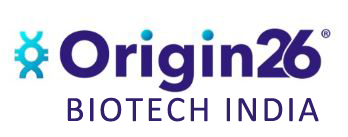
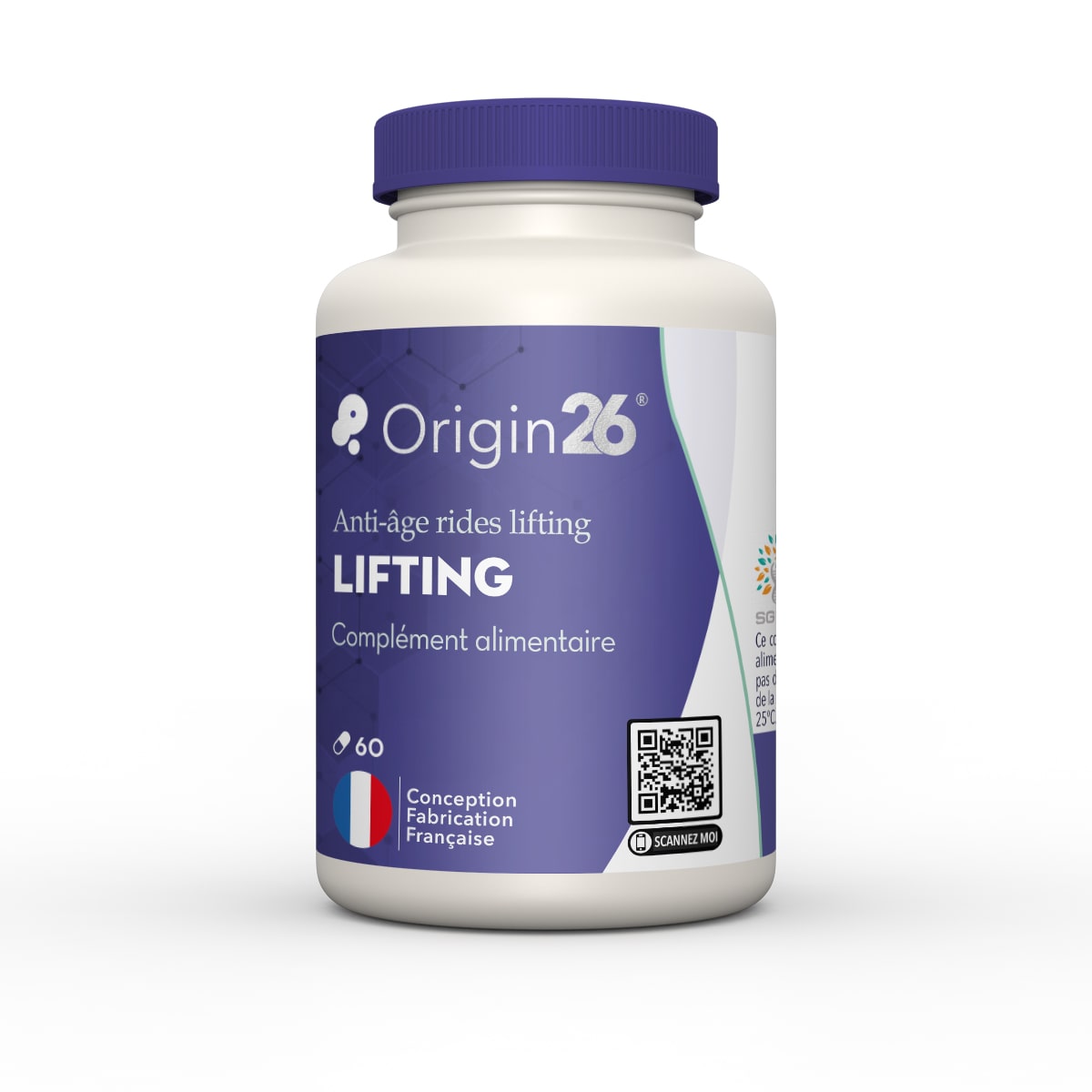

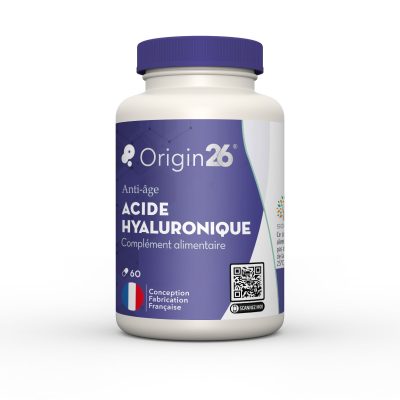
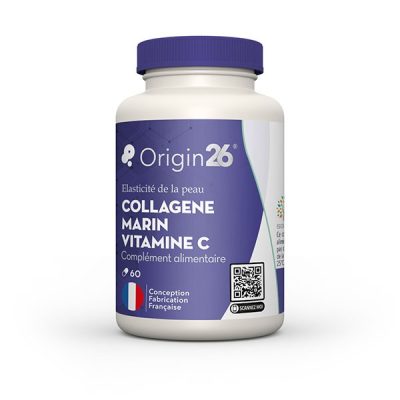
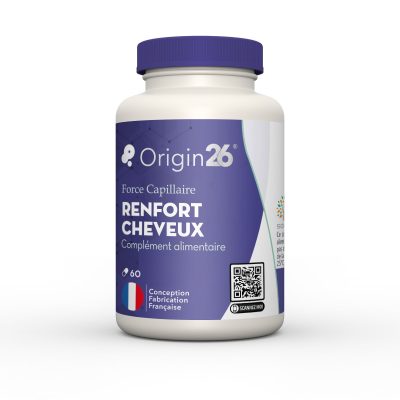
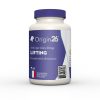
Reviews
There are no reviews yet.